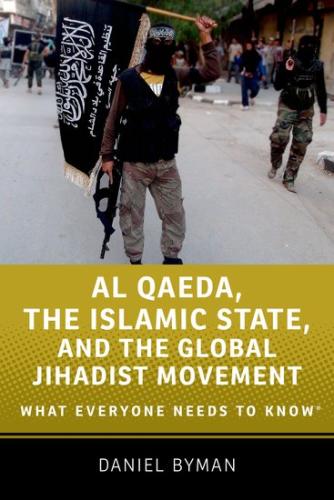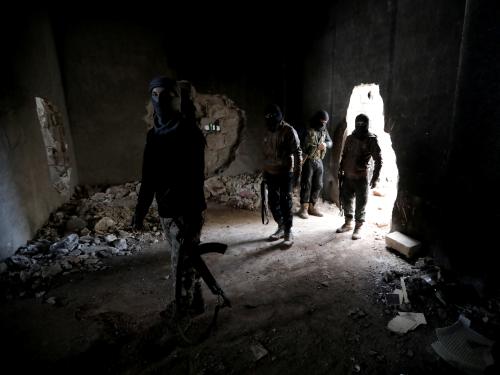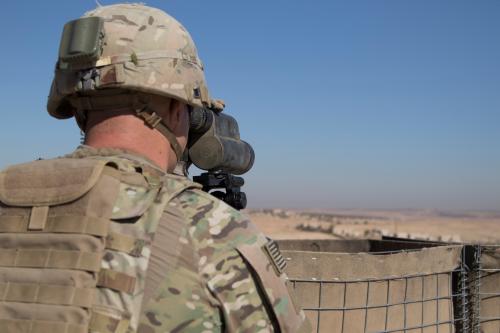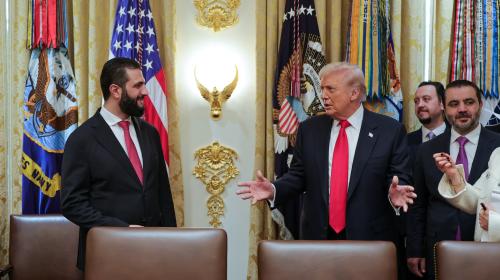With the regime of Bashar Assad winning Syria’s brutal and exhausting civil war, Syria may play a greater role as a regional actor. However, it is not likely to be the prominent player it was in the decades following the 1967 war through the collapse of the country into civil war in 2011.
Even with heroic assumptions, Syria will remain weak in the near- and mid-term, and probably even a decade out or more. Exhausted by civil war and riven by ethnic and communal divisions, its military is unable to play the regional role it once did, and domestic stability will remain the dominant military concern. The war left Syria’s cities in ruins, its economy shattered, and its people displaced. The reconstruction cost is estimated at several hundred billion dollars.
Instead, Syria will likely still be the object of meddling and remain an arena for regional competition, with its sovereignty regularly violated. Although the Assad regime is no longer threatened with losing power, it still does not control the entirety of the country, and rival states could back warlords or rebel groups against the government to prolong the civil war. Turkey is likely to work with, threaten, or even attack Syria’s Kurdish population, both to gain influence and to reduce the perceived threat from its own restive Kurds.
Yet for all these problems, Syria will have more agency and will likely try to exploit its weaknesses to increase its autonomy and influence.
Iran: Proxy or Pushback?
Iran has played a central role in the Assad regime’s survival. In addition to deploying several thousand Islamic Revolutionary Guard Corps members to fight the war in Syria, even more Lebanese Hezbollah members have joined the fray. Thousands of Shiite fighters from Afghanistan and Pakistan (and from refugee communities living in Iran), paid by Tehran and operating under its direction, play an important role. Iran has spent over $15 billion on the war, a large sum for a country with a relatively small economy facing many problems of its own.
Such a presence gives Iran tremendous influence, and the Assad regime remains dependent on Iran to prosecute the war. It is possible to imagine, and many Sunni leaders do, a “Shiite Crescent” with Iran leading a bloc that includes Iraq, Syria, and Lebanon, where Hezbollah is the strongest actor. (Some Sunni leaders also include Yemen on this list.) This overstates Iran’s control and the unity of these governments, but there is no question that Iran is far more influential than it was before the U.S. invasion of Iraq and the civil war in Syria enabled Tehran to expand its sway.
Yet it is also possible that Syria will resist, or at least try to put limits on, Iranian dominance. Iran has little in common ideologically with the Syrian regime, and the Arab-Persian divide also fosters some resentment. Pushing back against Iran would be a way for Syrian leaders to improve their once strong, but now devastated, nationalist credentials—a way of uniting Sunnis, Alawites, and others under a common banner. The desire to look beyond Tehran will be especially strong if Iran cannot provide substantial financial support while governments hostile to Iran are able to do so, enabling the regime to play off the rivals. In neither case is it likely for Damascus to reject Tehran completely, but there is room for them to move along the spectrum.
In part to counter Iran, many regional states are likely to steadily reengage Syria in the medium term. Algeria, Iraq, and Lebanon all maintained relations with Syria during the war; the UAE re-opened its embassy; and Sudanese leader Omar al-Bashir visited Syria in December 2018. Egypt also floated the idea of a Syrian return to the Arab League. Turkish President Recep Tayyip Erdoğan, who once vowed to pray in the Umayyad mosque after Assad’s overthrow, has muted his hostile rhetoric against Assad.
Opportunities for Syria
Even if the Syrian regime is able to regain control over areas currently controlled by Kurdish and Turkish forces and otherwise restore its sovereignty, it will remain desperately weak. Politically, the regime—never popular—won due to the support of foreign powers and a brutal military campaign. It will rely on repression and force to maintain power, all while coping with an economy in ruins.
No country will come close to filling this void. Tehran may provide hundreds of millions or even low billions of dollars to help with immediate needs, which will help the regime maintain power among military elites and key supporters. The United States, increasingly skeptical of foreign aid and hostile to the Assad regime, is not likely to contribute. The Gulf states are rarely major donors in a reconstruction sense and remain hostile to the Assad regime, though they may provide limited aid to counter Iranian influence.
Syria would benefit from greater international support and recognition in several ways. First, although large-scale aid is not likely, even small amounts of financial support would enable the regime to bribe and placate key supporters in the military and elsewhere. Second, meeting with external leaders would enhance the stature of Assad and the regime as a whole, giving them more domestic credibility. Finally, Damascus wants outside powers to refrain from supporting Syrian opposition figures in order to increase and consolidate its control over the country.
Syria’s weakness, ironically, gives it some leverage. Neighboring states like Jordan fear continued instability in Syria and have an incentive to quietly work with the regime, especially on border issues. Several European countries, notably Germany, are under political pressure due to the Syrian refugee presence and would prefer that many refugees return home. Turkey, Lebanon, Jordan, and other neighbors host far more refugees and their economies are far more strained. The Assad regime can use refugees as pawns, demanding aid to care for them should they return and as a de facto ransom to ensure the humane treatment of any returnees. European states in particular may be willing to work with the Assad regime and provide it with aid, using the refugees as humanitarian cover for normalizing relations with the regime.
Counterterrorism also gives the Syrian regime a form of leverage. In the early days of the Syrian civil war, the Assad regime released jihadis and focused its military efforts on non-jihadi factions in a successful effort to stoke sectarianism and paint its enemies as terrorists. For the regime, a small terrorism problem proved politically useful. In the coming years, especially after a U.S. withdrawal, Damascus might seek to attract U.S. and European support to fight Islamic State remnants and otherwise portray itself as part of a counterterrorist coalition. It can use the possibility of Iranian and Russian help in fighting the Islamic State as a way to lure rivals to work with the government. Should there be a significant terrorist attack, the regime will try to present itself as partner to the affected governments.
None of these developments will return Syria to its pre-civil war status. However, they would mark a shift for Damascus and offer opportunities for it to increase its autonomy and influence. Syria’s situation represents an opportunity. The United States can work with its allies to try to reduce Iran’s influence in Syria (though keeping its expectations realistic) and improve cooperation on refugees and counterterrorism. The Trump administration, however, is not eager to engage in regional diplomacy even in easier circumstances, and Washington will probably try to avoid the morass of Syria today even if it means missing a chance for greater regional influence.
The Brookings Institution is committed to quality, independence, and impact.
We are supported by a diverse array of funders. In line with our values and policies, each Brookings publication represents the sole views of its author(s).








Commentary
Can Syria return to the regional stage?
February 28, 2019